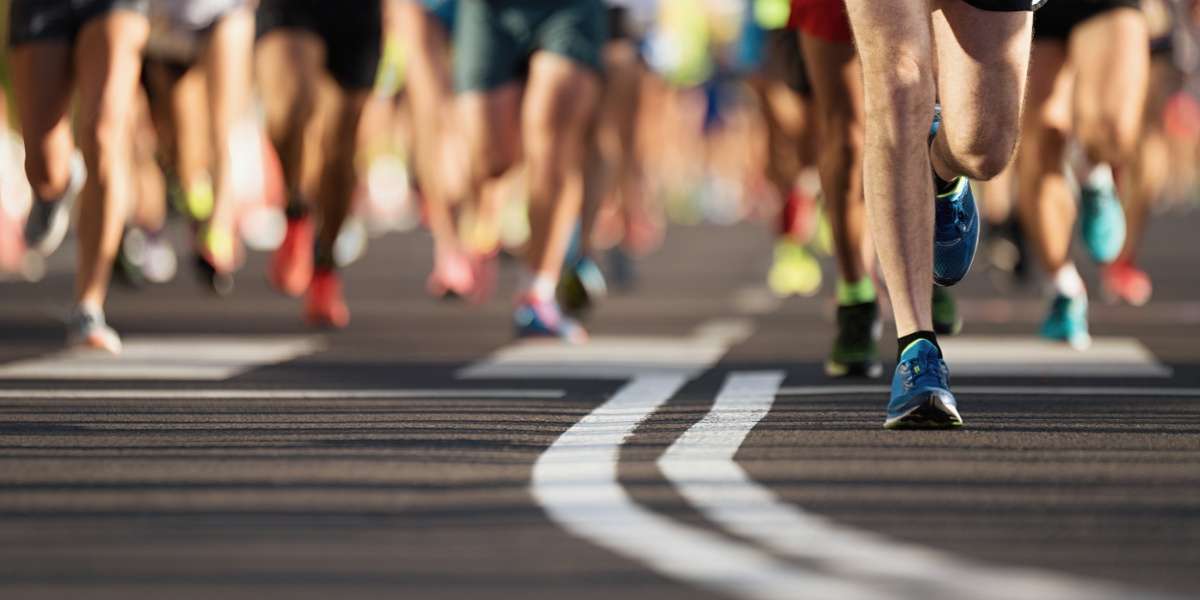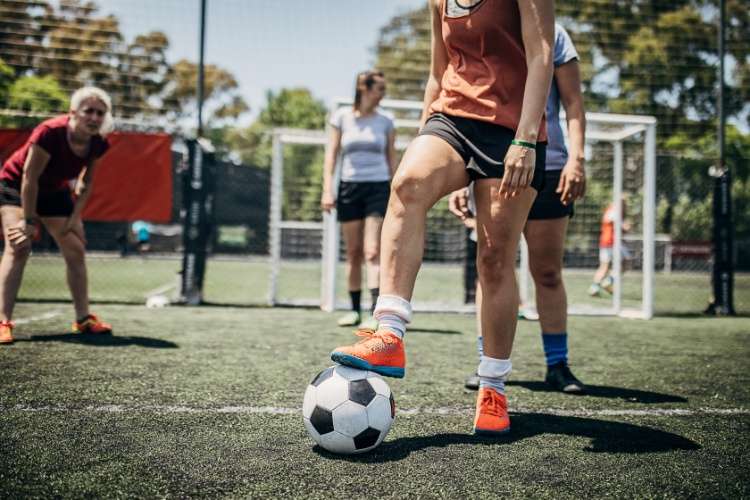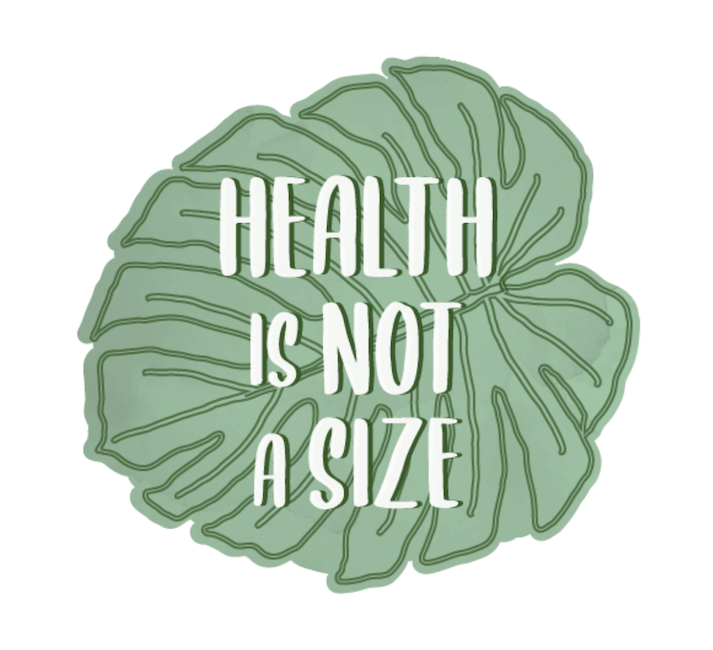
How to Recognize and Address Eating Disorders in Athletes?
Although eating disorders are often linked to non-athletes, they can affect athletes too. Sports bring so many great benefits—like social connections, staying active, and boosting mental health—but they can also be stressful and competitive. If student-athletes aren’t nourishing themselves properly, it can take a toll not just on their performance but on their overall physical and mental well-being too.
How common are eating disorders in athletes?
Some athletes might be at a greater risk of developing an eating disorder when they start to focus more on body weight and shape than on their overall health. This is especially common in sports that emphasize performance, appearance, and weight, like swimming, gymnastics, wrestling, running, and figure skating. The competitive nature of these sports can create pressure to meet specific weight goals or body ideals, which may lead to unhealthy eating habits.
A study published in the Journal of Clinical Sports Psychology in 2018 found that 7.3% of high school athletes reported having an eating disorder, compared to just 2.3% of non-athlete high school students. This shows that the pressures athletes face can make them more vulnerable to these issues. It’s important to raise awareness and provide support for eating disorders and athletes, as addressing these challenges early on can help them develop a healthier relationship with food and their bodies.
Schedule a Free 15 Minute Discovery Call
"*" indicates required fields

Why do athletes develop disordered eating habits?
There are several reasons athletes may develop disordered eating habits, but it’s important to note that eating disorders in athletes arise from a complex combination of factors that differ for each individual. These can include genetics, family eating habits, emotional states, eating behaviors, and the surrounding environment including the unique demands of their sport and the pressure to perform well. Things like strict training schedules, weight requirements, and the desire to stay competitive can all contribute to an unhealthy relationship with food and exercise. While being an athlete alone doesn’t cause disordered eating, there are specific risk factors that can increase the likelihood of athletes developing these behaviors.
One factor is the pressure to attain a specific body type or appearance. This pressure can come from coaches, teammates, or even the media—often unintentionally—yet it still impacts athletes in a negative way. In endurance sports especially, there’s a common misconception that being lighter always means being faster, which can cause athletes to push themselves to reach a lower weight. Unfortunately, this can lead to disordered eating behaviors as they strive to meet those expectations.
Certain personality traits also play a role. Athletes are often perfectionists, high achievers, and detail-oriented, which can make them more self-critical and push them to set high expectations for themselves—not just in their sport, but in their eating habits too. They may feel that strict control over their diet is essential for peak performance, which can lead to rigid and unhealthy eating patterns. Additionally, a lack of proper nutrition education can cause athletes to believe that eating less will make them faster or lighter, when in fact, it can negatively impact both their performance and health. Early education, support from coaches, dietitians, and mental health professionals can go a long way in preventing these issues. Ultimately, it’s important to recognize these pressures so we can support athletes and eating disorders to stay healthy both physically and mentally.
What are the signs of disordered eating in athletes?
There’s a difference between disordered eating and an eating disorder. Disordered eating includes a range of unhealthy eating habits, like restricting food, binge eating, purging, or being overly focused on eating “clean,” that may not necessarily lead to a formal diagnosis. On the other hand, an eating disorder is a diagnosed mental health condition, with specific criteria, including things like anorexia, bulimia, and binge eating disorder.
It can be harder to spot signs of an eating disorder in athletes because they often take good care of their bodies and athletic eating disorders don’t always look the same for everyone. You can’t tell just by someone’s appearance. However, there are some warning signs to watch for, like a constant focus on body shape and weight, noticeable weight changes, shifts in bowel habits, and, for women, irregular periods. When it comes to behaviors that might indicate disordered eating, you might notice:
Having Rigid Eating Habits
Sticking to healthy eating habits is important, especially for athletes who need to fuel their bodies with nutritious foods like fruits, grains, vegetables, and protein. However, becoming overly focused on eating only “healthy” foods can turn into an unhealthy obsession. This can actually limit the variety of nutrients they get and increase the risk of malnutrition in the long run.
Restrictive Habits
Athletes sometimes resort to restrictive eating to quickly lose weight or maintain a lower body weight for their sport. However, cutting out certain food groups or limiting calories can harm their performance, energy levels, focus, and strength. Over time, it can also cause nutrient deficiencies and lead to other health problems.
Binge Eating Behaviors
Athletes may turn to binge eating as a way to cope with stress or after periods of restrictive eating. This involves eating large quantities of food in a short time, often feeling like they have little control over their eating during these episodes.
Other signs of Disordered Eating in Athletes:
- Intense fear of weight gain
- Excessive exercise
- Negative self-talk or criticism
- Obsessive thoughts about food
- Hair thinning or loss from nutritional deficits
- Changes in menstrual cycles and hormonal imbalances
- Completely avoiding ‘junk’ or ‘unhealthy’ foods
- Skipping gatherings or events centered around food
- Experiencing feelings of distress, shame, or guilt during or after eating
Ultimately, these behaviors might be subtle, but they’re really important to notice when it comes to supporting an athlete’s well-being. If you or someone you know is dealing with disordered eating as an athlete, it’s essential to speak up—these behaviors shouldn’t be brushed aside. The sooner they get support, the quicker they can start their journey to recovery. Try having a private conversation with them, and understand that it’s okay if they’re not ready to acknowledge it right away. It’s all part of the journey.
Effects of Eating Disorders on Athletes
Athletes with eating disorders can experience serious physical, psychological, and performance-related effects. These impact both their short-term and long-term health thus impacting their current performance and post sports health. Here are some of the ways eating disorders affect athletes:
1. Physical Health Consequences
Restrictive eating, purging, or other disordered behaviors often result in nutrient deficiencies. This creates a weakened immune function and energy deficits that make it more difficult to build muscle and recover putting the athlete at a higher risk for injury. In addition, issues like dehydration and electrolyte imbalances can further impact their stamina, endurance, and focus during training and competition.
2. Hormonal Disruptions
Many athletes with eating disorders, particularly female athletes, experience hormonal imbalances due to restricted calorie intake. This can lead to low energy availability and menstrual cycle changes. For males, low energy availability can also lead to hormonal imbalances, impacting testosterone levels and leading to decreased muscle mass and strength.
3. Mental Health Challenges
Increased anxiety, depression, and obsessive behaviors around food and exercise are common in athletes with eating disorders. These mental health challenges can interfere with focus, increase burnout risk, and reduce motivation. Additionally, many athletes experience a sense of isolation due to their eating disorder. This feeling often results in hiding their disordered behaviors and withdrawing from social situations that involve food.
4. Performance Decline
While athletes may initially believe that restrictive eating or extreme control over their diet will enhance performance, the opposite is usually true. Athletes require the proper intake of food to maintain the energy, endurance, and cognitive function to perform at their best. Over time, athletes that restrict can fatigue faster, struggle to keep up with training demands, or fail to reach their performance goals.
5. Long-term Health Risks
Beyond the immediate impacts, disordered eating habits can lead to long-term health problems, including cardiovascular issues, and chronic digestive problems. Additionally, cutting out certain foods in your routine diet can lead to an increased risk of injury and impact their ability to compete or even affect them long after they stop competing.
Addressing disordered eating in athletes early can prevent many of these risks from escalating. It is important to surround yourself with a support staff of coaches, parents, and fellow athletes that foster an environment where mental and physical health are prioritized as much as performance.
Helping Athletes with Eating Disorders
Athletes dealing with disordered eating or eating disorders often find it hard to say “yes” to treatment. They may fear taking a break from their sport, missing out on recruitment by their dream university, or losing a sports scholarship. While every athlete’s situation is unique, recovery requires time and dedication, making it difficult to fully commit to both their sport and their healing process at the same time.
Just like most sports, treating eating disorders in athletes requires a team approach that focuses on the unique needs of each person. A key part of this team is a dietitian who specializes in helping those with athletic eating disorders or disordered eating. These dietitians are skilled at working with eating disorders and athletes to overcome their struggles, build healthy eating habits, and develop a balanced relationship with food. They create personalized goals that fit the athlete’s preferences and active lifestyle, working one-on-one to ensure their needs are met.
Additionally, an important part of their role is educating athletes on how proper nutrition impacts both performance and overall health. Teaching them how to fuel their bodies in a way that supports peak performance while keeping their physical and mental well-being in check. Beyond nutrition advice, the dietitian also serves as a supportive guide, offering helpful solutions whenever challenges arise on their recovery journey.


Finding Dietitians for Athletes and Eating Disorders
Look no further because at Nutrition Braved, we’re dedicated to helping you achieve a healthy balance between sports performance and eating disorder recovery. Our caring eating disorder dietitians are dedicated to helping you let go of food restrictions and adopt a more mindful approach to eating.
Together, we’ll address any unhelpful thoughts and beliefs about food, transforming your eating experience. Ultimately, our goal is to improve not just your relationship with food and exercise but also with your entire body, empowering you to listen to its signals for both mental and physical health. Your journey toward long-term health and well-being means a lot to us! In our safe and supportive environment, your voice matters, and we’re here to listen and support you every step of the way.
If you could benefit from working with our eating disorder, feel free to call us at 630-474-5321 to chat with a Nutrition Braved dietitian. They’ll be happy to share more about how we can support you and discuss your specific needs. You can also reach out by filling out our contact form, and we’ll get back to you as soon as we can!


